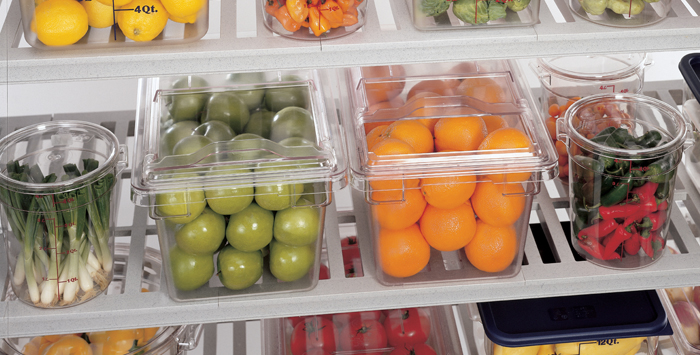Proper food storage is very important because the in the food very easily accumulate bacteria. Consuming food that is not of adequate quality can lead to food poisoning. To prevent this, use the following tips:

- Keep food in the fridge: For the development of bacteria, require certain temperature. To prevent their development is necessary to provide storage in a cold environment.
- Before you put food in the fridge, make sure it has cooled. Hot food can raise a temperature of refrigerators and create conditions for the growth of bacteria.
- Before using the food, keep it at room temperature for the shortest possible or use it immediately.
- Food leftovers keep in the refrigerator within 90 minutes and do not keep more than 2 days.
- Food from metal cans put into a container, because metal can easily getinto food.
- Maintain refrigerator: That foodstuff stays fresh, you need to maintain your refrigerator. The temperature inside the refrigerator should be below 5 degrees to prevent the bacterial growth. Maintain cleanliness in your refrigerator, that the food debris and dirt would not create additional conditions for food spoilage.
- Pay attention to dates: Each food you buy has an imprinted expiration date.
- The deadlines are declared as “use by” are shorter, and it is necessary to use food until that deadline. After that, it should be discarded.
- Dates that are declared us as “best before” have a longer run. The date listed is the time limit within the product is of the best quality.
- Store the meat properly :
- Fresh meats put on the top shelf of the refrigerator, in a special container, without contact with other food
- Separate raw meat from cooked meat
- Do not use the meat which is out of date
- Store food in the freezer :
- Freeze food that is within the expiry date
- Defrost food immediately before use and do not allow long standing.
- Do not refreeze food that you thawed.
- Freeze smaller portions and defrost only as much as you need.
- Thawed foods heat up only once and make sure that it has reached at least 70 degrees. More warming means a higher risk of bacterial growth and poisoning
- Be careful with the bags: If you use a re- useable bags, discard if in them has spilled juice of raw meat.
For more tips like this, visit The Fish Society.





